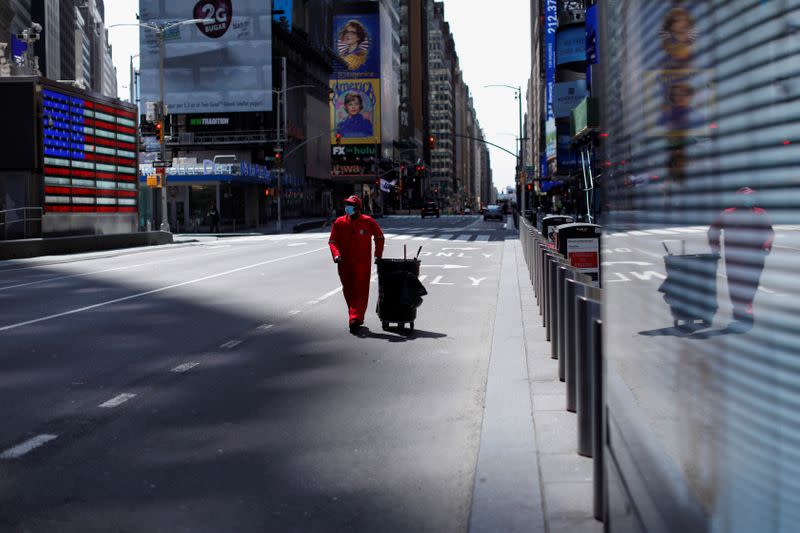The seven-day average of new Covid-19 deaths in the United States hit its lowest point since October 2020, a CNN analysis of Johns Hopkins University data found Thursday.
As of Wednesday, 684 new deaths were reported, the JHU data showed, which is about an 80% drop since January. Since the beginning of 2021, the seven-day average number of Covid-19 deaths appears to have regularly decreased, according to JHU data.
The fall in deaths is at least partly due to vaccinations, experts said.Covid-19 vaccinations are already having a significant impact on death rates among certain groups in the United States, such as older adults, Dr. Amesh Adalja, senior scholar at the Johns Hopkins Center for Health Security, told CNN on Thursday.
"If you look, for example at populations that have been highly vaccinated like nursing home residents, you will see that deaths in nursing homes have plummeted, and overall, the death rate has been falling over time," Adalja said. "It's really a function of how many of the high-risk individuals have been vaccinated and that is becoming more evident."
Yet, experts warn that to defeat the virus, more Americans need to get vaccinated, notably, young people, some of whom still are hesitant or may think they don't have as much to fear from the virus. Everyone 16 and older are currently eligible for a Covid-19 vaccine. But a recent Quinnipiac University poll found 36% of adults under the age of 35 don't plan on getting one.
Here's why it matters that young groups sign up for the shots: When Centers for Disease Control and Prevention Director Dr Rochelle Walensky warned of a rise in Covid-19 cases and hospitalizations earlier this month, that increase was predominantly among younger adults, most of whom were not vaccinated.
Some experts estimate that to suppress the spread of the virus, somewhere between 70% to 85% of the US population needs to be immune. So far, roughly 43% of the country has received at least one Covid-19 vaccine dose and about 29.5% is fully vaccinated, according to CDC data.
About 35% of the US population has been infected with the virus that causes Covid-19, the CDC said Thursday. The agency estimates the virus has led to 114.6 million infections, 97.1 million symptomatic illnesses, and 5.6 million hospitalizations from February 2020 to March 2021.
The more people are vaccinated, the fewer opportunities the virus has to not only transmit but to further mutate. And we already know what those mutations could mean. One coronavirus variant, for example, which became the dominant strain in the US, helped fuel recent Covid-19 spikes in several states, including Michigan. That strain, the B.1.1.7 variant, is more contagious and hits younger people particularly hard.
And there's another major reason young people shouldn't turn away from the shot: long-term consequences of Covid-19.
"One critical way to prevent long Covid is to prevent Covid itself," National Institutes of Health Director Dr. Francis Collins said at a House Energy and Commerce subcommittee hearing on Wednesday.
"Even for young people who consider their risk of severe Covid to below, the long-term consequences can be quite serious," he added. "So long Covid represents one more reason to encourage everyone age 16 and over to get vaccinated as quickly as possible."
And those long-lasting symptoms can develop even in people who have mild cases of Covid-19. Americans have reported dozens of persistent symptoms that last months after their infection, including fatigue, headaches, memory loss, gastrointestinal problems, muscle aches, heart palpitations, and loss of smell or taste.
Story Credit

 US manages to control the second wave of covid-19
US manages to control the second wave of covid-19 
























.jpeg)








